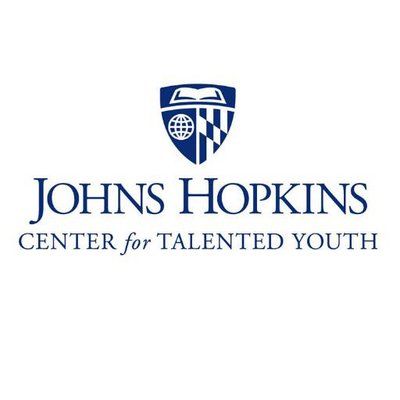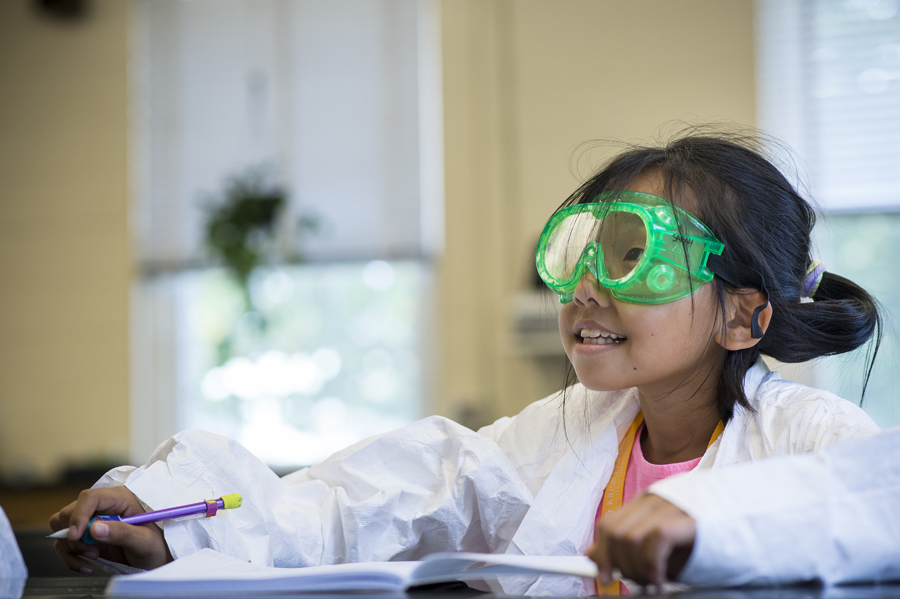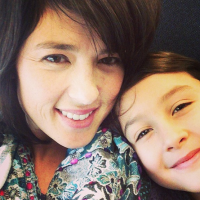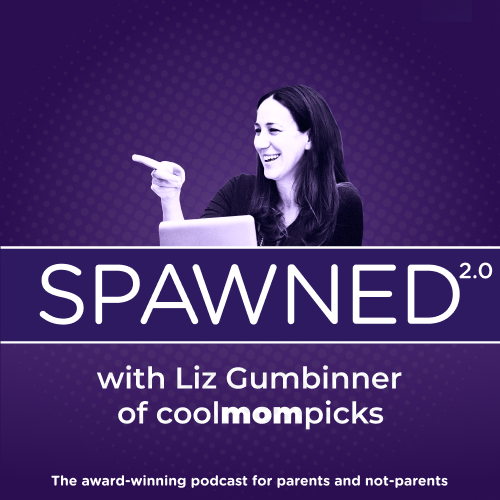I still remember when my son’s then first-grade teacher asked if they could test him for the gifted program in our school district. I looked at her and asked, “Are you sure?”
I just thought my sweet, curious boy asked a lot of questions. Like, a whooooole lot.
But gifted?
Even after he was identified as qualifying for our program, navigating next steps was extremely challenging. I had to understand my rights with the GIEP (Gifted Individualized Education Plan); find him educational support outside of school; and then figure out how it would impact his siblings and whether they should be tested too.
To be honest, without our amazing first-grade teacher, I’m not sure I would have known what to do when it came to my gifted child.
That’s why I’m thrilled that we’re working with our returning sponsor, the Johns Hopkins Center for Talented Youth (or CTY, as it’s fondly been called for more than 30 years). This nonprofit recognizes that all kids need to be challenged, inspired, engaged, and nurtured so that they can reach their full potential.
To do just that, they offer incredibly popular online, family, and summer programs — including scholarships — for kids K–12.
They were actually one of the first resources I turned to myself, so I really have phenomenal first-person experience with them, and a good knowledge of the services they provide for gifted kids and their families.
So, I’m excited to have have the opportunity to interview Dr. Jonathan Plucker, the Julian C. Stanley Professor of Talent Development at Johns Hopkins Center for Talented Youth, an award-winner in the area of creativity and gifted research with over 25 years of teaching experience.
He’s here to share some expert advice and smart tips to help you determine whether your child might be gifted, and if so, just what to do next.
(And for those of you with older children heading off to college, he is also the author a popular blog series on making the most of the college experience.)
I can truly say that CTY has made a huge impact on my own family, which is why I’m so glad they’re here to help yours too. -Kristen

Q: The word “gifted” is used a lot, but when it comes to education, how is it determined that a child is indeed gifted?
Dr. Plucker: There are no standard definitions of giftedness, so each district and even school may have their own definition.
Several states have definitions and criteria for public schools. Mandated definitions and services for gifted students can be identified on a case-by-case basis using resources such as the State of the States data collected every other year by the National Association for Gifted Children and Council of State Directors of Programs for the Gifted.
Because definitions of giftedness vary from place to place, identification of gifted students also varies quite a bit.
In over 25 years as a teacher and professor involved with gifted education, I don’t think I’ve ever seen the same identification system twice. But there are definitely similarities among these many different approaches, which often include the following:
- A combination of ability test scores
- Achievement test scores
- Teacher observations
- Teacher ratings
- Parent ratings
- Portfolios of prior work
- And, even peer nominations
Some systems heavily weight test scores in identifying gifted students, others give greater consideration to teacher and parent nominations. This patchwork system means that some schools identify 1% of their students as “gifted,” others 10–15%, and others don’t identify anyone at all.
This is often very frustrating for parents, especially if their families move and their child has to change schools.
Related: 10 free educational online resources for curious kids that every parent should know.
Educators and researchers are increasingly talking about the needs of twice exceptional students, those children who have considerable academic talents but also significant learning challenges.
When I was an elementary teacher, I had a student who was incredibly talented in spatial reasoning but who struggled with severe dyslexia. That was several years ago, and people generally thought of students as being “gifted” or “special ed,” with little to no overlap among those groups — it was really hard for me to convince colleagues that we should be helping the student develop his spatial strengths.
We’ve come a long way in this regard, and meeting the needs of “twice exceptional” students is now widely accepted.
The big takeaway: Education is slowly (and I do mean slooooowly) moving to a system in which both learning and healthy development of individual students is equally important, including the acknowledgement that every student has strengths to be developed as well as issues to be addressed.

Q: What types of services in general are available to gifted children when it comes to their education?
Dr. Plucker: The spotty patchwork of policies means that services vary widely, so it is impossible to predict which services a family will find in their school.
That said, there are basically two types of interventions: acceleration (faster learning) and enrichment (deeper learning).
- Acceleration is letting students move through the curriculum at a faster-than-average pace. Research provides ample evidence that acceleration strategies are usually quite effective. When parents hear “acceleration,” they often think “grade skipping,” but that is but one of many different types of acceleration.For example, students can be accelerated in just one subject area and never have to leave their current grade or even classroom. They can enter kindergarten or graduate high school early, or they can take an online high school math class in middle school.The Belin-Blank Center at the University of Iowa is an international leader in the study of acceleration, and their website has lots of helpful information.
- Enrichment is providing students with opportunities to dive more deeply into subjects. Research on the effectiveness of enrichment programs is less common and less impressive than acceleration research, but there’s no question that advanced students enjoy having the opportunity to dive into topics of interest in greater depth.They key for good enrichment programming is for students to be able to pursue topics that are of interest to them.
Acceleration and enrichment can happen outside of the regular classroom or can be fully integrated into it. When I was an elementary school teacher, we had a fifth grader who took the sixth grade math class, several other students were accelerated in their regular classroom, some students were “pulled out” of their class one hour per week to work on enrichment projects with me, one teacher had me help her turn all of her instruction into enrichment for each of her students, and one special education student worked with me after school on enrichment projects in physics.
It was a mix of acceleration and enrichment; in-class, pull-out, and after school; individual, small group, and whole class.
This is a rather ideal situation — my principal had the attitude that we should do whatever we needed to do to help advanced students — but it shows that a range of services can be used within a given school to help your gifted student learn.
*******
From our sponsor

If you’re looking for advanced learning opportunities for your gifted child, the nonprofit Johns Hopkins Center for Talented Youth (CTY) knows exactly what kids need to keep their minds sharp.
Their K–12 programs range from year-round online courses to summer programs in the U.S. and Hong Kong, all designed to provide both intellectual challenge and a sense of belonging that’s essential for a child’s social growth and happiness.
Classes are offered in lots of subjects and interest areas, all taught by expert instructors.
And because CTY knows that providing your kids with the extra support and education they want or need can be an investment, they are vigorously committed to meeting the demonstrated financial need of all students who qualify. In fact, they award nearly $6 million in need-based scholarship funding to families annually.
To learn more about the CTY Talent Search, scholarship opportunities, and their online and summer programs, sign up for the CTY email list. Your child could join the nearly 150,000 CTY alumni worldwide — including Mark Zuckerberg.
(You recognize that name, right?)
*******
Q: What are some typical behaviors, actions, responses, signs that parents might see from their gifted child?
Dr. Plucker: I generally don’t favor “typical behaviors” lists, because they tend to become a checklist for parents as they observe their child, and no list is perfect. Some highly advanced students go through their childhood and exhibit few of the characteristics on the lists; other students exhibit everything on the lists but are not ready for more rigorous academics.
So with the caveat that any such lists should be viewed as suggestions of things to look out for, and nothing more, here are a few decent ones:
- Common Characteristics of Gifted Individuals, from the National Association for Gifted Children
- Characteristics and Behavior of the Gifted, from the Rhode Island State Advisory Committee on Gifted and Talented Education
- Characteristics of creative children, one specifically on creativity from The Second Principle.
Q: If parents suspect their school-aged child might be gifted, what are good next steps?
Dr. Plucker:
- Do your homework about the school. Learn about the school’s policies and services for advanced students. They may be labeled as services for advanced, gifted, high potential, high performing, etc.
- Do your homework about your child. Gather all the data you can about your child. The Davidson Institute and National Association for Gifted Children provide substantial resources for parents.
- Talk to your child’s teacher. Detailed recommendations are shared below.
- Explore out-of-school options. There are plentiful weekend, after school, and online opportunities for advanced students in most school districts, and the growth of homeschooling for bright children has helped create lots of good programs during the weekday too. State and local homeschooling organizations can point you toward the best resources.

Q: Any dos and don’ts for approaching a teacher about your child’s needs as a potentially gifted child?
Dr. Plucker: I’ve been on both sides of these conversations, and they are rarely easy.
In parent-teacher discussions about meeting an advanced child’s needs, it’s easy for the conversation to get confrontational. Keep in mind that the teacher may have no training whatsoever in identifying and working with talented students. Only a handful of states require teachers to have any coursework in this area before they begin teaching or serving as a principal or superintendent. And most K-12 systems are designed primarily to help struggling students (state accountability systems that produce school rankings, teacher evaluations, etc.), which pushes gifted students to the fringes of some educators’ radar screens.
The most important thing to do is to get yourself educated.
If your child is old enough, know their academic history and test scores. If your child attends a public school, be familiar with your state’s requirements for advanced learners; whether public or private, read up on the school’s policies to know what is offered and how the identification process is shaped.
You can’t over-prepare for this conversation.
When you sit down with the teacher, take a “How can we help you help our child?” approach.
Make it clear that you’re all on the same team, with the goal of wanting to help your child remain challenged. Many teachers, especially those early in their career, will be sympathetic to a gifted child’s needs but not know what to do about it. And the idea of lots of extra work to help one student often feels imposing when there is so much need in today’s classrooms.
That’s why approaching it as a partnership, where you send a clear message that you are willing to do your part, tends to work better than the more common approach of Why aren’t you meeting my gifted child’s needs?
When you do encounter a supportive educator, do your part to support them 100%.
The percentage of K-12 teachers who are highly concerned about advanced students, are highly motivated to help meet those students’ needs, and have the training to do so is pretty small. Our education system just isn’t set up to encourage these attitudes and provide this training.
So a teacher who is going out on a limb to advocate for and address the needs of gifted students is swimming upstream professionally, and they deserve your enthusiastic backing.

Thanks to our sponsor, the nonprofit Johns Hopkins Center for Talented Youth, for helping to make it easier for parents like me to provide support and learning opportunities for gifted children.
Visit their website now to learn more about their much-lauded online, family, and summer programs for kids K–12.









